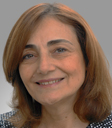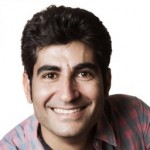Global Speakers

A/Prof Marcel Dinger
Head, Kinghorn Centre for Clinical Genomics, Lab Head: Genome Informatics
Garvan Institute of Medical Research
Marcel Dinger is the Founding CEO of Genome.One, Head of the Kinghorn Centre for Clinical Genomics (KCCG) at the Garvan Institute of Medical Research and conjoint Associate Professor at UNSW Australia. Genome.One is a world-class clinical genomics service and develops specialist software and analytics solutions to enable precision healthcare worldwide. Genome.One was one of the first companies in the world to implement the HiSeq X Ten genome sequencing platform, which has capacity to sequence 18,000 human genomes per year, and provide a clinical whole genome sequencing. He has worked in bioinformatics and genomics since 1998 in both commercial and academic capacities. He was awarded his PhD in 2003 from the University of Waikato in New Zealand, has published >80 papers attracting more than 10,000 citations, and is recipient of several highly competitive awards and fellowships. He is also a founder of two other successful start-up companies. In 2016, Marcel was admitted as a Fellow into the Faculty of Sciences of the Royal College of Pathologists of Australiasia and is a Graduate of the Australian Institute of Company Directors.

A/Prof Ching Lai-Ming
Professor and Head: Stromal Targeting Agents Group
Auckland Cancer Society Research Centre, Faculty of Medical and Health Sciences, University of Auckland, New Zealand
Professor Lai-Ming Ching studied at the University of Auckland for her BSc, MSc and PhD in Immunology After graduation she obtained a post-doctoral fellowship at the Ontario Cancer Institute, Toronto; followed by a staff position at the University of Washington, Seattle. Upon her return to New Zealand, Lai-Ming joined the Auckland Cancer Society Research Centre, where she now leads a team researching new drugs that help the body’s immune system fight cancer. Lai-Ming’s research is focused on understanding the interactions between the immune system and cancer, as she believes that that will lead to the development of immunotherapies capable of providing patients with a long-term protection against the disease. Highlights from Lai-Ming’s sustained research in this area include the selection and entry of the STING agonist, DMXAA into human clinical trials; and the recent invention of novel IDO1-inhibitors for overcoming immune suppression for the treatment of cancer and other diseases.

Dr Huynh The Hung
Principal Investigator: Lab of Molecular Endocrinology, Division of Cellular & Molecular Research
National Cancer Centre Singapore (NCCS)

Dr Nicholas Huntington
Lab Head: Molecular Immunology
Walter + Eliza Hall Institute of Medical Research (WEHI)
Dr Huntington is a laboratory head in the Division of Molecular Immunology/Clinical Translation Centre at the Walter and Eliza Hall Institute of Medical Research (WEHI). Dr Huntington is a NHMRC fellow and 2016 Burnet Prize recipient. He is a leader in natural killer (NK) biology as evidenced by seminal publications in the highest-ranking immunology journals. Dr Huntington has dedicated his career to understanding the environmental and genetic factors that regulate the homeostasis of NK cells and their role in disease. He initiated this research theme during his PhD where he was awarded the high commendation for the Victorian Premier’s Award, the NHMRC/RG Menzies Award for leadership and the highly prestigious Human Frontiers Science Program Fellowship. Dr Huntington spent 5 years at the Institut Pasteur in Paris developing cutting-edge human xenograft models and returned in 2012 to establish his independent research group. Dr Huntington’s recent contributions include the discovery of multiple regulatory mechanisms of IL-15 signalling in NK cells including the first intracellular checkpoint in NK cell activation and tumour immunity. Dr Huntington leads a research program aimed at deciphering the regulatory networks that control NK cell development and homeostasis and screening for novel checkpoints in NK cell activation for targeting in cancer immunotherapy.

Dr Helen Kavnoudias
Head of the Radiology Research Unit
The Alfred Hospital
Dr Helen Kavnoudias has headed the Radiology Research Unit at the Alfred Hospital since 2002 and has contributed to numerous internal and commercially sponsored clinical trials. Her work has covered a broad range of diseases including vascular disease, uterine fibroids and focal tumour ablation with irreversible electroporation (IRE). She was an author on the first human study of irreversible electroporation for the treatment of focal tumours in the liver, kidney and lung. She currently has an NHMRC grant for a Phase 1 trial of IRE for prostate cancer. She began her medical research career in cellular biology investigating differentiation induction of myeloid leukaemias in murine models at the University of St Andrew in Scotland followed by work on the cellular proliferation of megakaryocytes at the University of Melbourne.

Dr Matt Dun
Group Leader: Molecular Oncology Group
Hunter Medical Research Institute (HMRI)
Dr Dun is a midcareer cancer researcher from the Hunter Medical Research Institute (HMRI) at the University of Newcastle, supported by a Cancer Institute NSW Early Career Fellowship (2017-2019). Dr Dun has previously been supported by two additional Cancer Institute NSW Fellowships, which have enabled him to establish a research group that couples quantitative discovery and targeted proteomics with cell and molecular biology. This research paradigm aims to identify new and improved drug targets and treatment strategies for leukaemia. Dr Dun has extensive international postdoctoral training, completing posting to the laboratories of leading scientists including; Prof Martin Larsen at the University of Southern Denmark in Denmark and worked with Prof Jan Cools at the VIB Center for Cancer Biology, University of Leuven in Belgium. He has also completed the EMBO Advanced Targeted Proteomics Course in Spain. These experiences were driving factors in his successful application to establish a high-resolution mass spectrometry platform in 2015. Over the last 5 years, he has published >20 research articles in leading international journals including; Leukemia, Molecular & Cell Proteomics, Oncotarget, Nucleic Acids Research, Journal of Biological Chemistry and Journal of Cell Science. He has received >$2.9 million in research funding and 18 national and international research awards. Dr Dun is a Director of the Priority Research Centre for Cancer Research, Innovation and Translation at the University of Newcastle and HMRI, and a Director of the Australian Society for Medical Research.

Prof Stephen J Clarke
Director, Area Cancer Services; Professor of Medicine
Northern Sydney Local Health District; University of Sydney

Dr Tan Meng How
Senior Research Scientist; Assistant Professor
Stem Cell & Regenerative Biology Genome Institute of Singapore; School of Chemical and Biomedical Engineering Nanyang Technological University

Dr Ilia Voskoboinik
Group Leader & Chief Investigator: Immunology, Biogenesis of Cytotocis Granules
Peter MacCallum Cancer Centre
A/Prof Voskoboinik completed his Ph.D. in Toxicology at the RMIT-University (Melbourne), and then did post doctoral training at the Department of Environmental Medicine (Karolinska Institute, Stockholm), followed by the Department of Genetics (The University of Melbourne), where he was studying congenital disorders of copper metabolism. In 2003, he relocated to Peter MacCallum Cancer Centre, where he is now a Group Leader of Killer Cell Biology Laboratory within Cancer Immunology Research Program. His main interests are the regulation of cytotoxic lymphocyte function, primary immunodeficiencies and predisposition to cancer. He has published over 70 papers in major journals, including Nature, Nature Nanotechnology, Immunity, Journal of Experimental Medicine and Blood.

Dr Lev Kats
Team Leader, Cancer Therapeutic Program
Peter MacCallum Cancer Centre
Dr Lev Kats, BSc(Hons), LLB, PhD is a Victorian Cancer Agency Mid-Career Fellow and heads the Targeted Therapeutics Laboratory within the Translational Haematology Program at the Peter MacCallum Cancer Centre. He completed his PhD at Monash University and postdoctoral training at Beth Israel Deaconess Centre/Harvard Medical School. Dr Kats is an expert in pre-clinical mouse models of cancer and epigenetic regulation of haematopoiesis and leukaemia. Over the past five years he has led pioneering work on targeting IDH mutations that has contributed to the clinical development of novel inhibitors for AML.

Dr Paul A Beavis
Chief Investigator, Immunotherapy Program
Peter MacCallum Cancer Centre
Dr. Paul Beavis is a senior post-doctoral researcher at the Peter MacCallum Cancer Centre (Melbourne, Australia) in the Cancer Immunotherapy group led by Assoc. Prof. Darcy. He completed his PhD in 2010 studying the role of regulatory T cells in inflammatory diseases in the laboratory of Prof. Fionula Brennan and Sir Marc Feldmann (Imperial College London). This gave him an understanding in immunology and immunotherapy which he now applies to Cancer Immunotherapy. His work at the Peter Mac is focused upon using novel strategies to overcome tumor-induced immunosuppression. Dr. Beavis’ work has highlighted the potential of targeting adenosine mediated immunosuppression to enhance anti-tumor immune responses. This has led to important publications in journals such as JCI, PNAS (x2), Trends in Immunology and Cancer Research (x2). His current work is focused upon the therapeutic targeting of adenosine, particularly the A2A receptor in combination with other immunotherapies such as anti-PD-1 and CAR T cells to treat solid cancers. These combinations are now in phase I clinical trials, highlighting the translational potential of these approaches.

Dr Peter Hersey
Honorary Professor in Immuno Oncology
Centenary Institute, University of Sydney
Professor Peter Hersey has extensive experience in both clinical and laboratory based research on melanoma. This has been from positions as a staff specialist and as research director at the Newcastle melanoma unit and C/joint professor of Oncology in the University of Newcastle and from the inaugural chair of Melanoma Biology in the University of Sydney from 2011. His translational research activities have involved phase I-III trials of immunotherapy in melanoma, with modified peptide antigens and dendritic cell vaccines. He has taken a leading role in studies on properties of melanoma cells that make them resistant to treatment and new treatment approaches to overcome these properties. He is generally recognized as a pioneer of immunotherapy for melanoma in Australia and in focusing on properties of melanoma cells that make them resistant to apoptosis. He has participated in most of the key clinical trials on immunotherapy with immune checkpoint inhibitors. He is a member of the Melanoma Research Institute of Australia and has received continuous funding from the NHMRC for his research. He is a joint holder of a prestigious NHMRC program grant since 2005 which has been renewed for a third 5 year period. Current interest centers on the role of epigenetic regulators in progression and treatment of melanoma.

Dr Ruth Kluck
Lab Head: Molecular Genetics of Cancer Division
Walter + Eliza Hall Institute of Medical Research (WEHI)
Dr Kluck is a cell biologist and laboratory head at The Walter and Eliza Hall Institute. She has studied apoptotic cell death since her PhD at the Queensland Institute for Medical Research. As a postdoc at the La Jolla Institute for Allergy and Immunology (1995-2002), she made the seminal discovery that Bcl-2 inhibits apoptosis by blocking mitochondrial release of cytochrome c. In 2002, she moved to the Walter and Eliza Hall Institute where she has focused on the regulation and function of the pore-forming proteins Bak and Bax. She discovered that to initiate apoptosis, Bak and Bax first form novel symmetric dimers via the BH3 domain binding to the hydrophobic groove of another Bak or Bax molecule. These dimers then generate apoptotic pores by forming disordered clusters in the mitochondrial membrane. Her group recently discovered that a specific antibody to Bak could trigger its activation and pore formation, and is exploring means of specifically directing the antibody into cancer cells.

Dr Elaine Sanij
Senior Scientist: Cancer Signalling Laboratory
Peter MacCallum Cancer Centre
After completing her Ph.D. at Monash University in 2003, Elaine was awarded a Cancer Research UK Postdoctoral Fellowship at the London Research Institute, London. In 2006, She joined Peter MacCallum Cancer Centre as a Senior Research Scientist in the Oncogenic Signalling and Growth Control Program.
Elaine has achieved international recognition for her contributions to the realization that dysregulated RNA Polymerase I transcription and ribosome biogenesis is a hallmark of cancer that can be therapeutically targeted. Her studies led to the development of the first-in-class Pol I inhibitor CX-5461 as an anti-tumor agent that is currently in 2 international phase I/II clinical trials in patients with haematological malignancies (Peter Mac) and breast cancer (Canadian Cancer Trials Group). Her current studies demonstrate therapeutic benefit for CX-5461 against high-grade serous ovarian cancer. A phase II clinical trial in ovarian cancer is planned for 2018 at Peter MacCallum Cancer Centre.

Vanita Dahia
Functional Pathology Clinical Consultant
NutriPath
Vanita Dahia is an integrative medicine clinical consultant pharmacist, naturopath and clinical nutritionist.
Functional pathology clinical consultant and Health Services manager providing in-depth technical and clinical consultancy and expert technical training incorporating assessment, interpretation and prescriptive guidelines to doctors and allied health practitioners internationally. Vanita is a medical authority and extraordinary mentor to her peers and patients alike. As a presenter to her peers and community at large, she is engaging, articulate, humorous, and insightful, making learning a dynamic experience for professional and personal growth.
Board certified fellow in Anti-ageing and regenerative medicine providing clinical training programs and educational initiatives to Dr’s and allied health practitioners. She has more than 30 years expertise in compounding pharmacy, functional Pathology, herbal, Ayurveda and integrative medicine. Vanita received her training in anti-aging medicine through association and membership with the American Academy of Anti-Aging Medicine (A4M and A5M) and Professional compounding Centres of America and Australia (PCCA).
Vanita is an international speaker and a published author of Alchemy of the Mind, co-author of The Book of Inspiration for Women by Women and Healthy Body.

Dr Prashant Sawant
Chief Scientist
Intraceuticals
Dr. Prashant D. Sawant, PhD., MBA, is a Chief Scientist at Intraceuticals Pty Ltd, Melbourne, Australia. Some of his research interests include nanoscience and their biomedical applications such as vaccine delivery, ophthalmology, etc.; dermatology, prostate cancer, genechips, nutrition based therapies, and innovation management. He has worked for academic and multinational companies in four countries after his Ph.D. and travelled worldwide in the past 23 years.
Dr. Sawant has developed various types of nanoparticles and studied their biomedical applications including lung imaging during his Ph.D. (1996) and did six years of post-doctoral research in nanoscience, biophysics and biomedical engineering from Universities in Israel, Singapore and Australia. He has developed and taught nanoscience, biophysics and biomedical technologies courses and mentored research students and scientists at Universities in Australia and Singapore.
Dr. Sawant’s recent work includes nanotheranostics and their applications for cancer management. To date, Dr. Sawant has authored 17 patent applications, three book chapters, four review articles and 31 research articles in reputed scientific journals, and five peer-reviewed conference articles. Additionally, he has received grants worth +$2 Mil in India, Israel, Singapore and Australia for research projects and infrastructure development. He was also involved in the product development for Stiefel, GSK, Pfizer, Unilever, and ICI, and developed more than 100 products worth $200Mil. Finally, Dr. Sawant has been awarded by his employers for scientific and business innovations, leadership and for problem solving.

Dr Abbas Shafiee
Postdoctoral Research Fellow, Institute of Health and Biomedical Innovation
Queensland University of Technology
Dr. Abbas Shafiee is a PhD specialized in stem cell biology, and tissue engineering. Dr. Shafiee is a post-doctoral researcher at the Queensland University of Technology (QUT, Brisbane, Australia) in the Centre for Regenerative Medicine led by Professor Dietmar W. Hutmacher.
Dr. Shafiee completed his PhD at The University of Queensland Centre for Clinical Research (UQCCR). His PhD study focused on the in vivo definition of endothelial progenitor cells (EPC) from the human term placenta tissues. As a result of this project, he established a new in vivo hierarchy amongst EPCs. Then he moved to QUT to undertake his postdoctoral research by Professor Hutmacher, where they have developed a new cutting edge research area, namely “humanized animal models” via the translation of tissue engineering technologies into cancer research.
